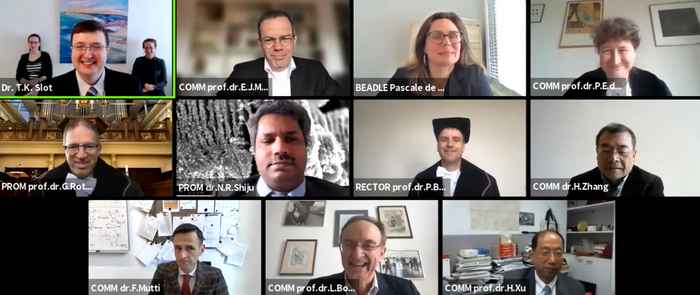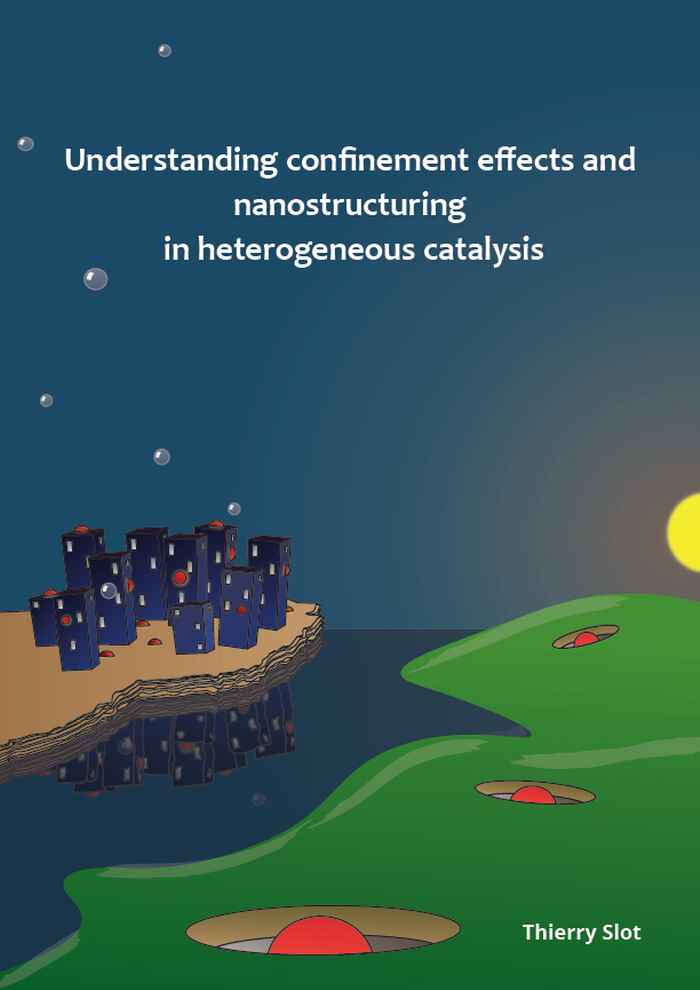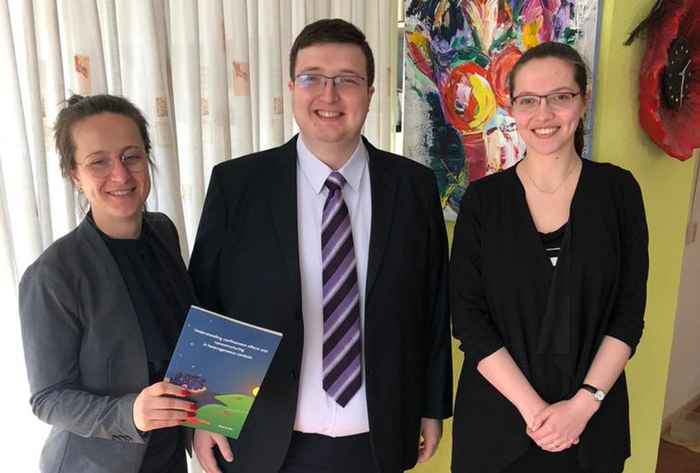Thierry Slot obtains PhD with distinction 'cum laude'
20 April 2021

For the past four years, Slot worked on the NWO TOP-PUNT project Catalysis in confined spaces where he studied confinement effects by altering the structure of various catalytic materials. Under the supervision of Prof. Gadi Rothenberg and Dr Shiju Raveendran, he unravelled the relation between the Arrhenius pre-exponential factor and confinement effects at surfaces. This he did using a novel three-step synthesis approach, developed in collaboration with the group of Prof. Will Medlin at the University of Colorado, Boulder, where molecular fences were placed at different distances from the active sites. His studies on MXenes, recently invented two-dimensional materials, also showed that these are potential heterogeneous catalysts in liquid-phase reactions.
Counting bubbles

To obtain the precise measurements required for his experiments, Slot designed and built from scratch a benchtop device that can monitor the kinetics of gas-producing reactions very precisely. This device was a game-changer: It allowed the team to study subtle kinetic effects that could not be observed with the upside-down burette. The design and files for 3D printing the device were published open-access in Angewandte Chemie, and anyone can now build it. Several groups at the UvA and elsewhere are now using such bubble-counting devices for monitoring a variety of reactions.
In the second part of his thesis, Slot studied MAX phases and MXene materials with the goal of creating better catalysts for on-demand hydrogen generation. His results have important implications for catalyst design and sustainable energy applications. His paper published in the IOP journal 2D materials was one of the most read articles in just a few weeks after publication.

During his PhD, Slot also spent three months at Fudan University in Shanghai as part of the student exchange program of the Research Priority Area Sustainable Chemistry, working in the group of Prof. Hualong Xu where he developed new catalysts and catalytic reactors.
Cum laude PhD defences are rare, accounting for less than five per cent of the PhDs at the UvA. In Slot’s case, the committee was especially impressed by the innovation and originality of his research, and by the fact that he has invented and developed new equipment that has immediately found wide practical application.
Azrieli Fellowship
Slot will continue his work abroad. He was recently awarded an Azrieli Fellowship which will allow him to move to Israel and work with Dr David Eisenberg at the Technion in Haifa on new materials for electrochemical applications. The prestigious fellowship, offered by the Azrieli Foundation, is part of a leadership program aimed at supporting scientists who will lead change with their creative thinking, cross-pollination of ideas and cutting-edge contributions, to solve the world’s most pressing issues.
Links
UvA Research Priority Area Sustainable Chemistry
Website Azrieli Foundation
Thierry Slot's thesis at the UvA academic repository